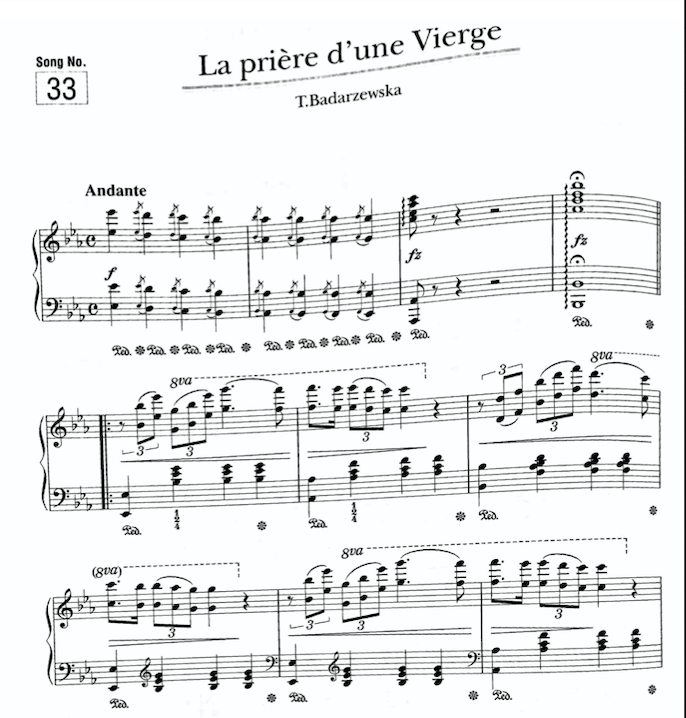La priere dune vierge
جهت نمایش ادامه محتوا و دانلود لطفا در سایت ثبت نام کنید
[restrict] . . .
فایل صوتی

La priere dune vierge
Bądarzewska
wrote about 35 small compositions for piano; by far her most famous
composition is the piece Modlitwa dziewicy, Op. 4
(“A Maiden’s Prayer”, French: La prière d’une vierge),
which was published in 1856 in Warsaw, and then as a supplement to the Revue et gazette musicale de Paris in 1859.
Several musical scholars have spoken somewhat ill of Bądarzewska’s
musical career. Percy Scholes writes of Bądarzewska in
The Oxford Companion to Music (9th edition, reprinted 1967):
“Born in Warsaw in 1838 [sic] and died there in 1861, aged twenty-three [sic].
In this brief lifetime she accomplished, perhaps, more than any composer who
ever lived, for she provided the piano of absolutely every tasteless sentimental person
in the so-called civilised world with a piece of music which that person, however
unaccomplished in a dull technical sense, could play. It is probable that if the market
stalls and back-street music shops of Britain were to be searched The Maiden’s Prayer
would be found to be still selling, and as for the Empire at large, Messrs. Allen of Melbourne
reported in 1924, sixty years after the death of the composer, that their house alone was still disposing of 10,000 copies a year.”
The composition is a short piano piece for intermediate pianists. Some have liked it for its charming and
romantic melody, and others have described it as “sentimental salon tosh.”
The pianist and academic Arthur Loesser described it as a “dowdy product of ineptitude.”
The American musician Bob Wills arranged the piece in the Western swing style and wrote lyrics for it.
He first recorded it in 1935 as “Maiden’s Prayer.” Later, it became a standard recorded by many country artists. It is also played on certain garbage trucks in Taiwan
In the 1930 opera Rise and Fall of the City of Mahagonny by Kurt Weill and Bertolt Brecht, scene 9 in act 1
is satirically based on a pianistic paraphrase of the piece, whose theme is quoted by the men’s chorus later in the following ensemble.
[/restrict]

